In February 1994, cultural tremors were everywhere. The Winter Olympics had just kicked off in Lillehammer, Norway, while Ace of Base was climbing the charts with their soon-to-be No. 1 hit, “The Sign.” Just days before, Green Day released their breakthrough album Dookie, which would soon explode into the mainstream. Meanwhile, Seinfeld was a television juggernaut, solidifying its place in 90s pop culture. But far from the Olympic spotlight and sitcom one-liners, Pavement quietly dropped Crooked Rain, Crooked Rain on February 14, 1994—a Valentine’s Day gift to fans of messy, melodic, and inventive rock. This album would prove to be a pivotal moment not only for the band but for the indie rock landscape, offering an antidote to the polished sounds of alternative radio.
The Journey to Crooked Rain
Formed in Stockton, California, in 1989, Pavement never fit comfortably within the commercial landscape. Their debut album, Slanted and Enchanted (1992), introduced a band that sounded like they were held together by loose threads—jangly, slightly out of tune, but always with a sense of melody peeking through the chaos. While these rough edges kept them away from the mainstream, this very quality attracted fans searching for something raw and genuine beyond the polished alternative rock dominating the airwaves.
By the time Crooked Rain, Crooked Rain hit, Pavement had tightened up their sound without losing their slacker charm. They had swapped out their unpredictable original drummer, Gary Young, for Steve West, bringing cohesion to their once loose, improvisational style. The result? A more focused record that still retained their quirky edge. Tracks like “Cut Your Hair” and “Range Life” embodied the band’s talent for crafting catchy, off-kilter melodies while layering in Stephen Malkmus’ witty, often absurd lyrics. Pavement’s ability to meld pop rock, post-punk, and even country gave this album a unique place in the indie rock canon.
The Velvet Underground Effect
It’s hard to reconcile the enduring importance of Pavement with their modest album sales and lack of consistent mainstream popularity. MTV didn’t push them heavily, and they rarely cracked major charts. But, much like The Velvet Underground before them, Pavement’s influence on future bands far outweighed their commercial success. Their twisted takes on pop, post-punk, and jam-band aesthetics provided a fresh option for those disillusioned with corporate rock. Whether it was the jangly irony of “Cut Your Hair” or the country-tinged drift of “Range Life,” Pavement offered something that radio and MTV simply didn’t.
Pavement’s legacy wasn’t built on album sales, but on inspiration. Their lo-fi sensibility, sharp lyrics, and deceptively complex guitar interplay became the blueprint for countless indie bands that would follow. They were never about selling out arenas—they were about shaping a subgenre.
Crooked Rain’s Place in 1994
To understand Crooked Rain, Crooked Rain, you need to see it in the context of early 1994. Grunge was still roaring, with Nirvana and Pearl Jam leading the charge. But cracks were starting to show as the alternative scene began to commercialize. Meanwhile, bands like Green Day were about to usher in a new wave of punk into the mainstream. Pavement, however, existed in a parallel universe. They didn’t write radio hits or tailor themselves to MTV’s formula. Instead, they created songs that, while undeniably catchy, were too loose, too quirky, and too self-aware to fit into the mainstream.
Tracks like “Silence Kid” and “Stop Breathing” showed Pavement’s ability to balance dissonance with melody, while Malkmus’ lyrics ranged from ironic industry critiques to abstract musings. The music may have sounded laid-back, almost haphazard at times, but there was precision beneath the surface. Pavement was a band that knew exactly what they were doing, even if it sounded like they were just goofing off.
More Than Just Slacker Rock
The “slacker” label often attached to Pavement stems from Malkmus’ deadpan delivery and the band’s offbeat charm. But there was always more to their music. Their ability to write melodies that were both catchy and disorienting set them apart from their peers. Crooked Rain, Crooked Rain revealed a band that was honing its craft, tightening their songwriting, and leaning into their strengths.
This wasn’t just escapism from the predictability of alternative rock; it was a redefinition of what indie rock could be. Pavement weren’t just slackers—they were architects of a new indie ethos that combined irreverence with real musical innovation.
Why Crooked Rain, Crooked Rain Still Matters
Though Pavement never became commercial darlings, their influence on indie and alternative music is undeniable. Crooked Rain, Crooked Rain sold a respectable 335,000 copies, and “Cut Your Hair” reached No. 10 on the U.S. Alternative Songs chart. But these numbers barely scratch the surface of the album’s true legacy. Pavement created music that felt familiar yet always out of reach—like an inside joke you could almost understand.
Their fusion of post-punk experimentation with classic rock melody and jam-band looseness made them impossible to pigeonhole. At a time when music was increasingly segmented by genre, Pavement refused to be boxed in. This unpredictability is why Crooked Rain, Crooked Rain still resonates today.
Whether you’re drawn to Malkmus’ dry humor, the intricate guitar work, or the genre-defying nature of the album, Crooked Rain, Crooked Rain remains a touchstone for indie music fans. In an era where indie rock has become more polished and accessible, Pavement’s 1994 masterpiece stands as a reminder that the most enduring music often comes from those who never quite fit in.
Songs in this Episode
Intro - Cut Your Hair
24:36 - Silence Kid
37:06 - Fillmore Jive
46:59 - Heaven Is a Truck
56:53 - Range Life
Outro - Gold Soundz
Make Your Voice Heard!
In our quest to explore the depths of 90s Rock, we rely on you, our listeners. Your suggestions drive our show – be it an underrated classic or a forgotten gem. By joining our DMO Union on Patreon, you help us stay independent and ad-free and gain the power to vote on and choose the albums we dive into each year. Together, let's unearth the treasures of 90s Rock, one listener-powered episode at a time.


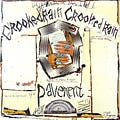
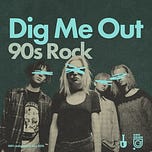








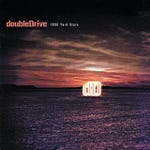
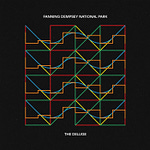

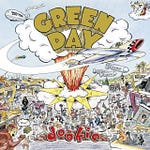
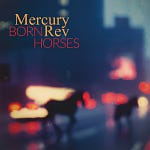
Pavement - Crooked Rain, Crooked Rain | 90s Rock Revisited